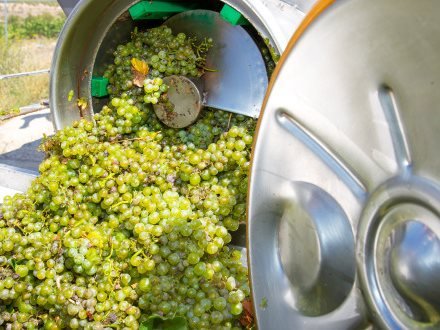Australian drinks exporters to the UK have been dealt another blow following the British government's decision not to cut wine and spirits duties.
The drinks industry has been campaigning for a 2% cut in wine and spirits duties to ease the burden on producers in the wake of Brexit. The government rejected the request and decided instead to lift the freeze on duties on beer and spirits that had been imposed in 2015. As of 13 March 2017, tariffs on beer, cider, wine and spirits will increase due to CPI inflation, which is currently 3.9%. .
The UK is currently the third largest market for Australian wine exports at $361 million. Wine companies were already suffering from lower margins due to the fallout from Brexit.
CHAMP CEO John Haddock, the majority shareholder in Accolade Wines, told the Australian Financial Review this week that the company had been affected by uncertainty in the UK economy. Accolade derives 55% of its sales from the UK, but the Brexit vote and the resulting fall in the value of the British pound was a factor behind the company's decision to postpone its IPO.
“There is no doubt that the UK is experiencing a changing landscape and we are adapting to that,” he said. “The fall in the pound makes it more difficult for exporters selling in the UK, who must sacrifice profit margins to remain competitive on supermarket retailers’ shelves.”
Last month, Australian Vintage reported that unfavorable exchange rates had cost it $10.5 million in the past six months. “Like all other Australian wine companies exporting to the UK, unfavorable movement in the pound has negatively impacted earnings,” CEO Neil McGuigan noted.
Spirits industry rage
The Wine and Spirits Trade Association condemned the government's decision, saying wine import costs had already increased by 15% following Brexit and the fall in the value of the British pound.
Meanwhile, the spirits industry was already saddled with one of the highest tariff rates in Europe.
Currently, the average duty paid on a bottle of still wine in the UK is £2.08, with customs duty and VAT levied at 55% of the price of each bottle sold, while the tax level on whiskey is 79%.
Miles Bell, chief executive of the WSTA, said: “It is disappointing that the Chancellor… has increased excessive and unfairly high tariff rates on UK wine and spirits consumers and businesses.
“Between the impact of Brexit on sterling and rising inflation, wine and spirits companies are facing a difficult trading landscape. This is a missed opportunity to support British businesses and help struggling consumers. Additional uncertainty over another Budget in six months’ time is unwelcome and will increase Undermining business and consumer confidence.
Julie Hesketh Laird, acting chief executive of the SWA, said: “A nearly 4% tariff increase and a 79% tax burden on a bottle of whiskey represents a significant blow, reversing the trend of recent progress.” “Looking ahead to the Autumn Budget, we will strongly argue that it is time for a new approach to tariffs outside the constraints of EU tariff law. The system needs fundamental review and reform to make it fair and competitive.”
Meanwhile, Charles Ireland, managing director of Diageo Great Britain, told the drinks company that higher alcohol duties are “bad for the economy, bad for business and bad for the British public”.
“The tax on Scotch whiskey is now very high – almost 80% of the price of the average bottle will go directly to the government. We believe this increase in the duty rate will reduce overall tax revenue. We are calling on the government to reverse this punitive tax increase and take Radical reform of the clearly flawed tariff system.
Detailed assignment by category:
Customs duty on a 750ml bottle of wine rises by 8p to £2.16.
Customs duty on a 750ml bottle of soft drink rises by 10p to £2.77.
Duty on a 750ml bottle of fortified wine rises by 11p to £2.89.
Duty on a 70cl bottle of vodka rises by 37.5% to £7.54
Customs duty on a 37.5% liter bottle of vodka rises by 40p to £10.78.
Customs duty on a 70cl bottle of gin rises by 40% to £8.05.
Duty on a liter bottle of gin rises by 40% to £11.50.


